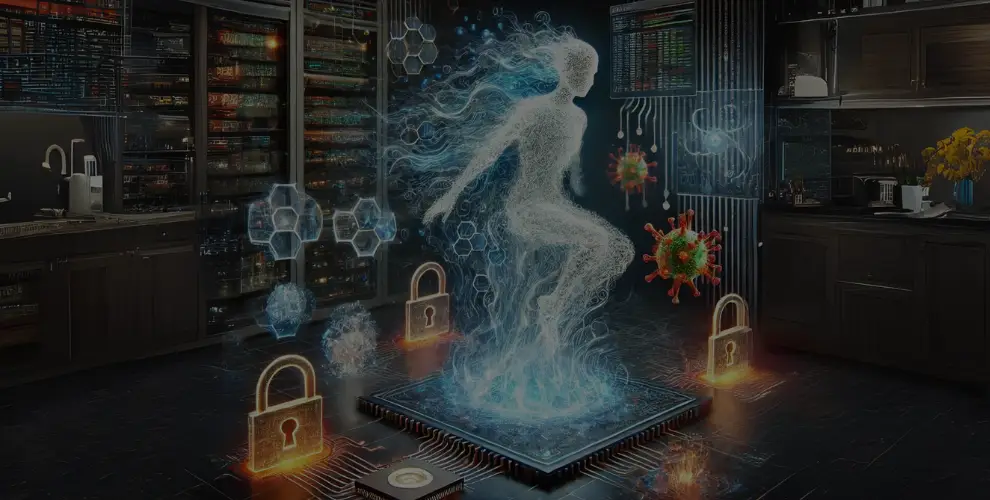
Will Cybersecurity be Replaced by AI
Table of Contents
Introduction:
Welcome to WikiGlitz!
We’ve brought you this amazing blog exploring the question: Will cybersecurity be replaced by AI?
As AI continues to revolutionize industries, many wonder whether it will fully take over cybersecurity roles, or if human expertise will remain essential.
In this blog, we will explore how AI is changing the cybersecurity landscape, the benefits and risks of AI in cybersecurity, and what the future holds for this evolving field.
Key Takeaways
- AI is transforming cybersecurity by automating threat detection, but human expertise remains critical for nuanced decision-making.
- AI in cybersecurity enhances efficiency but poses risks related to over-reliance on technology and potential vulnerabilities in AI systems.
- Cybersecurity will likely be a hybrid of AI and human expertise, with both playing essential roles.
Can AI Replace Cybersecurity?
The idea of AI fully replacing cybersecurity is a complex one. Can AI replace cybersecurity?
While AI can automate many cybersecurity tasks, such as identifying threats, monitoring networks, and responding to minor security incidents, it is unlikely to replace human cybersecurity experts completely.
AI excels at data analysis and automation, but it lacks the critical thinking, intuition, and adaptability required to handle sophisticated and evolving cyber threats.
AI-powered cybersecurity solutions are great for handling repetitive tasks, but they are not yet capable of managing the more complex aspects of cybersecurity, such as interpreting new attack patterns or understanding the full implications of a breach.
Will AI Take Over Cybersecurity?
Not entirely. AI will increasingly take over routine tasks such as network monitoring, malware detection, and even some incident responses.
However, AI lacks the ability to understand context, interpret complex threats, or devise long-term security strategies.
Experts like Bruce Schneier, a prominent cybersecurity authority, argue that while AI will be integral to cybersecurity, it won’t “take over” the field.
Instead, AI will work alongside human experts, handling the tasks it’s best suited for while leaving high-level decision-making to humans.
How AI is Changing Cybersecurity
How AI is changing cybersecurity is one of the most significant shifts in the field. AI’s ability to process vast amounts of data in real-time has revolutionized how cybersecurity threats are detected and managed. Here are a few ways AI is reshaping the field:
- Real-Time Threat Detection: AI can monitor network traffic and identify unusual patterns that could indicate a cyberattack, often faster than human experts.
- Predictive Analysis: AI can predict potential threats based on historical data, enabling organizations to prepare for future attacks.
- Automated Responses: AI can respond to low-level threats automatically, such as blocking suspicious IP addresses or isolating infected systems to prevent malware from spreading.
These advancements enhance efficiency and reduce response times, making AI-powered cybersecurity solutions crucial in today’s fast-paced digital environment.
Can AI Enhance Cybersecurity?
Absolutely. AI’s ability to handle vast amounts of data makes it an invaluable tool in cybersecurity.
By quickly identifying potential threats, AI allows cybersecurity teams to focus on more complex tasks. Some of the benefits are:
- Improved Efficiency: AI automates repetitive tasks like scanning for vulnerabilities or monitoring system logs, freeing up human experts for more critical work.
- Threat Detection: AI can detect threats that traditional cybersecurity systems might miss, such as advanced persistent threats (APTs) that evolve over time.
- Faster Response: Automated systems can react instantly to certain types of cyber threats, reducing the damage caused by attacks.
However, AI is not without its risks, and the over-reliance on AI systems can create a false sense of security, making it essential for organizations to balance AI capabilities with human oversight.
AI in Cybersecurity: Benefits and Risks
While AI offers many advantages in the realm of cybersecurity, it also comes with challenges. AI in cybersecurity: benefits and risks must be carefully weighed to understand its role in the future.
Benefits:
- Speed and Automation: AI can process information and make decisions faster than humans, allowing it to respond to threats more quickly.
- Reduced Human Error: Automating tasks reduces the likelihood of human errors, which are a common cause of cybersecurity breaches.
- Scalability: AI systems can manage and protect large networks more efficiently than human teams, especially for global organizations.
Risks:
- Vulnerability to Manipulation: AI systems can be tricked into making incorrect decisions, especially if attackers exploit weaknesses in the algorithms.
- Lack of Context: AI lacks the ability to interpret nuanced threats that require human intuition and understanding.
- Over-Reliance: Relying too heavily on AI can lead to complacency and insufficient human oversight, making systems vulnerable to sophisticated attacks.
Will AI Replace Human Jobs in Cybersecurity?
While AI will automate some tasks, it will not entirely replace human jobs.
Instead, AI will likely complement human roles, allowing cybersecurity professionals to focus on strategic decision-making, complex threat analysis, and incident response planning.
In fact, as AI takes over routine tasks, demand for skilled cybersecurity experts who can oversee, manage, and optimize AI systems may increase.
How Does AI Improve Cybersecurity?
By automating threat detection, reducing response times, and analyzing large datasets for suspicious activity, AI improves the overall efficiency of cybersecurity efforts.
Machine learning, a subset of AI, allows cybersecurity systems to learn from past threats and adapt to new ones without manual input, making security systems smarter over time.
AI vs. Human Cybersecurity Experts
AI vs. human cybersecurity experts isn’t about one replacing the other, but rather how they can work together.
AI excels at analyzing massive amounts of data and handling routine tasks, while human experts provide the strategic thinking and intuition that AI lacks.
For example, AI can prevent cyber attacks by flagging potential threats, but human experts are needed to interpret the data and decide on the most appropriate course of action.
Will AI Solve Cybersecurity Challenges?
While AI is a powerful tool, it cannot solve all cybersecurity challenges on its own. Many cybersecurity issues, such as insider threats or social engineering attacks, require human intervention.
AI can certainly mitigate many risks, but it should be seen as part of a broader strategy that includes both technology and human expertise.
What Role Does AI Play in Cybersecurity?
AI’s primary role is to enhance efficiency by automating the detection and response to cyber threats.
It acts as a force multiplier, enabling cybersecurity teams to cover more ground and react to threats faster than they could on their own.
AI’s role will continue to grow, but it will work in conjunction with human teams rather than replacing them.
How Does Machine Learning Impact Cybersecurity?
Machine learning (ML), a subset of AI, allows systems to improve their performance over time without human intervention.
In cybersecurity, ML is used to identify patterns in data that may indicate a threat, even if that threat has never been seen before.
ML enables AI systems to become more effective as they learn from previous attacks and adapt to new ones.
Future of AI in Cybersecurity
The future of AI in cybersecurity will likely involve an increased reliance on AI for routine tasks, such as scanning for vulnerabilities and detecting malware.
However, human expertise will continue to be essential for managing AI systems and addressing complex security challenges.
AI will also play a key role in cybersecurity automation, allowing organizations to defend against attacks more efficiently.
Follow WikiGlitz for more insights into the evolving landscape of cybersecurity and technology.
FAQs
Will cybersecurity be replaced by AI?
No, AI will not replace cybersecurity entirely. While it will automate certain tasks, human experts will still be essential for complex decision-making and strategy.
Can AI replace human jobs in cybersecurity?
AI may automate some jobs, but it will also create new roles focused on managing and optimizing AI systems, keeping humans essential in the cybersecurity field.
What are the risks of AI in cybersecurity?
The risks include AI’s vulnerability to manipulation, lack of contextual understanding, and the potential for over-reliance on technology without sufficient human oversight.
Can AI prevent cyber attacks?
Yes, AI can prevent certain types of cyberattacks by identifying patterns and anomalies in real-time, allowing for faster responses to threats.
What is the future of AI in cybersecurity?
The future will likely see AI taking on more routine cybersecurity tasks while human experts continue to handle complex and strategic responsibilities.
Want to keep up with our blog?
Our most valuable tips right inside your inbox, once per month.
Error: Contact form not found.
Previous
How Cybersecurity Really WorksWikiGlitz Team
Welcome to WikiGlitz, your ultimate destination for tech insights and innovation. Our expert team is dedicated to delivering free resources and professional advice on various technology topics, including Artificial Intelligence, Cyber Security, Cloud Computing, and more. We strive to empower our readers with up-to-date information and practical guidance, ensuring you stay ahead in the rapidly evolving tech landscape. At WikiGlitz, we are passionate about making complex technology accessible to everyone. Our team of seasoned experts curates content that is both informative and engaging, helping you understand and leverage the latest tech trends. Whether you're a tech enthusiast or a professional, WikiGlitz is your go-to source for reliable, expert-driven content. Join us on this journey to explore and embrace the future of technology.





